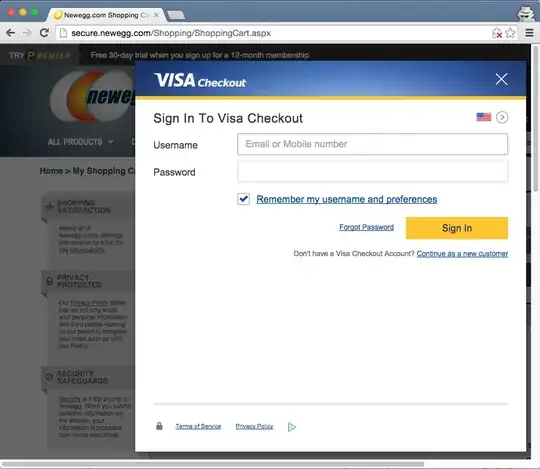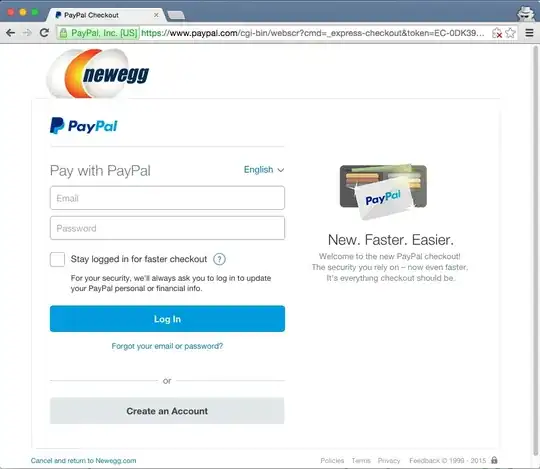A few online merchants are offering special deals for using Visa Checkout, a payment service similar to PayPal, so I've been trying to learn something about it before signing up. When you are on a shopping site and click the Visa Checkout icon, it pops up a window to enter your Visa Checkout username and password:
Is this scheme secure? I don't see anything that lets me verify that this popup is valid and protects my information. It seems that a rogue site could easily fake the popup and harvest the login credentials.
With PayPal, I am directed to the PayPal site to sign in, which lets my browser show me the PayPal host and TLS authentication:
If I check those items on the URL bar, I feel reasonably confident that I am delivering my credentials only to PayPal.
Is the PayPal scheme more secure than Visa Checkout? Or is there some way I'm missing to protect against spoofing?

